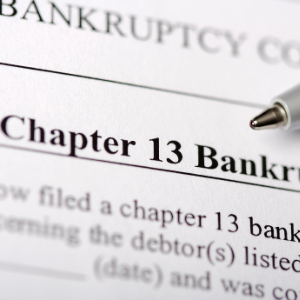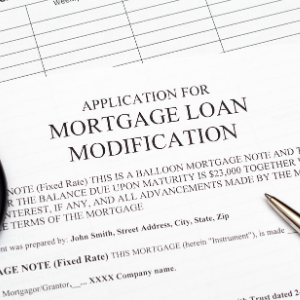Understanding Foreclosure Processes in Hawaii
Understanding the foreclosure process in Hawaii is critical for homeowners who wish to avoid losing their house. In Hawaii, foreclosure can occur through judicial or non-judicial processes, each with its own restrictions and timelines.
A judicial foreclosure requires the lender to file a lawsuit in court to seek permission to foreclose, which takes longer but permits homeowners to challenge the action. On the other hand, nonjudicial foreclosure is based on a power of sale clause in the mortgage agreement and does not require court intervention, resulting in a faster process.
Homeowners should be aware that lenders must send written notices before beginning foreclosure proceedings, allowing them to explore options such as loan modification or refinancing. Understanding the timetable is critical, from missed payments resulting in default notices to prospective property auction sales.
If avoiding foreclosure becomes difficult, working with Oahu Home Buyers can provide an immediate solution. They specialize in helping homeowners across Honolulu, Kailua, Kaneohe, Pearl City, and Kapolei sell their houses fast for cash—often closing in days, not months.
Legal Steps to Avoid Home Foreclosure
To effectively prevent home foreclosure in Hawaii, homeowners should become informed about the legal options for protecting their property. If you are experiencing financial difficulties, you must talk with your lender as soon as possible and openly, as this can sometimes result in loan modifications or forbearance agreements that temporarily lower or suspend payments.
Examining refinancing possibilities may also reduce monthly mortgage payments. Understanding the foreclosure timeline in Hawaii is critical. It usually entails a court process in which lenders must file a lawsuit to begin foreclosure proceedings.
Hiring a competent attorney specializing in foreclosure avoidance can substantially assist with complex legal procedures. It may help you consider choices such as filing for Chapter 13 bankruptcy, which can stop foreclosure proceedings and give you more time to reorganize your finances.
However, if keeping the property is no longer realistic, Oahu Home Buyers offers a stress-free way to avoid foreclosure altogether. They buy homes for cash in Honolulu, Pearl City, and surrounding areas, helping homeowners settle their mortgages quickly and move forward without the burden of legal battles or credit damage.
Financial Assistance for Homeowners Facing Foreclosure
Hawaii homeowners facing foreclosure have access to various financial aid services to help them navigate this difficult period and ultimately save their homes. The Mortgage Assistance Program is a valuable resource that provides temporary financial relief to those struggling to make mortgage payments due to unforeseen circumstances.
The state of Hawaii also provides access to HUD-approved housing counseling agencies, where experienced counselors help homeowners understand their alternatives and advocate with lenders. Furthermore, federal programs such as the Home Affordable Modification Program (HAMP) can help change loan terms to make monthly payments more manageable.
Homeowners may also be eligible for the Hardest Hit Fund, which is meant for states severely affected by economic downturns. This fund provides targeted assistance to prevent foreclosure. By looking into these financial help options, Hawaii residents can proactively secure their homes while efficiently managing financial stress.
How Loan Modifications Can Help Prevent Foreclosures
Loan modifications can be effective for Hawaii homeowners looking to avoid foreclosure. A loan modification might help you stay on top of your home loan by modifying the conditions of your mortgage.
In some situations, this process may include extending the loan term, lowering the interest rate, or adjusting the principal balance. Homeowners experiencing financial difficulties can benefit from contacting their lender early to discuss these choices, as lenders are often keen to avoid foreclosure and may offer programs developed particularly for this purpose.
In Hawaii, where property values and living expenses are high, a loan modification can bring significant relief by adjusting your mortgage terms to match your current financial circumstances. Gathering all required data, such as proof of income and costs, is critical to making a strong case for modification approval.
By actively communicating with your lender and researching various loan modification options, you can proactively avoid foreclosure and keep your Hawaii home.
HUD-approved Housing Counselors: Their Role in Foreclosure Prevention
Hawaii homeowners rely heavily on HUD-approved housing counselors to avert foreclosure. These specialists provide essential advice and support to those struggling financially, guiding them through complex foreclosure proceedings and explaining their rights and options.
HUD-approved counselors can construct specific action plans by providing specialized guidance, such as budgeting aid, loan modification options, or research into government programs to prevent house foreclosure. They liaise between homeowners and lenders, encouraging communication and negotiating better conditions or alternate repayment programs.
In Hawaii, where legal and market situations are distinct, these counselors have the local knowledge to solve the special problems Hawaiian homeowners face. Their experience not only helps people avoid foreclosure, but it also provides them with the financial literacy skills they need to be successful homeowners in the long run.
Working with a HUD-approved housing counselor early in the process increases the likelihood of successfully preventing foreclosure and provides peace of mind during difficult times.
Tips for Negotiating with Lenders to Stop Foreclosures
When faced with the prospect of home foreclosure in Hawaii, it is critical to negotiate successfully with your lender. Call your lender as soon as possible to discuss your financial condition and potential mortgage modification or refinancing options.
Being upfront and honest about your situation can develop a cooperative connection and increase the chances of achieving a mutually beneficial arrangement. Requesting a temporary forbearance can provide immediate help by halting or decreasing payments while you work to improve your finances.
Consider applying for government aid programs tailored to Hawaii that help struggling homeowners avoid foreclosure. You may also seek professional assistance from a HUD-approved housing consultant, who may walk you through bargaining methods and engage with lenders on your behalf.
Staying organized and keeping precise records of all interactions with your lender will help you during discussions by providing documentation of all communications and agreements reached.
Exploring Short Sale Options to Avoid Foreclosure
Exploring short sale possibilities can be a feasible strategy for Hawaii homeowners seeking to avoid foreclosure. A short sale is when you sell your house for less than the outstanding mortgage balance. This requires lender clearance, but can help you avoid the harmful effects of foreclosure on your credit score.
Working with a skilled real estate agent who understands local conditions is critical in Hawaii’s unique real estate market for successfully navigating the short sale procedure. It is essential to communicate clearly with your lender about your financial issues and demonstrate your inability to satisfy mortgage commitments, since this transparency boosts your chances of receiving approval for a short sale.
Furthermore, talking with a financial advisor or attorney specializing in Hawaiian real estate law can provide helpful insight into negotiating terms that may allow you to settle your debt amicably. Although it may appear frightening, pursuing a short sale may result in a better outcome than foreclosure by allowing you to manage your debt responsibly and protect future home-buying possibilities.
Bankruptcy: A Strategy to Stop Home Foreclosure
Filing for bankruptcy can be a strategic alternative for homeowners in Hawaii facing foreclosure. It starts an automatic stay, which temporarily suspends foreclosure procedures. This legal protection gives homeowners significant time to consider other options and fix their financial condition.
Individuals can use Chapter 13 bankruptcy to reorganize their obligations and develop a sustainable repayment schedule, including past-due mortgage payments. Homeowners who catch up on arrears over three to five years may be permitted to keep their homes while resolving other financial responsibilities.
However, homeowners contemplating this option should speak with a qualified bankruptcy attorney familiar with Hawaii’s laws and regulations. An attorney can advise on the nuances of the process and assist in assessing whether bankruptcy is the best option for their particular circumstances.
Understanding the long-term repercussions of filing for bankruptcy is also critical, since it affects credit scores and future borrowing capacity. Regardless of these factors, when confronted with impending foreclosure in Hawaii, bankruptcy can effectively reclaim control of one’s financial destiny while protecting one’s house.
Navigating the Judicial Foreclosure Process in Hawaii
To navigate the judicial foreclosure process in Hawaii, homeowners must first grasp their rights and the legal procedures involved. In Hawaii, foreclosure is primarily a judicial procedure, which means it occurs via the court system and gives homeowners certain rights.
Homeowners facing foreclosure should respond quickly to legal notices and consider hiring a reputable attorney or housing counselor specializing in Hawaiian foreclosure law. Early engagement with lenders and exploring options such as loan modification or repayment programs can help prevent foreclosure proceedings from progressing.
Homeowners should also become acquainted with the local resources accessible in Hawaii, such as state-sponsored programs to assist individuals struggling with mortgage payments. Understanding each stage of the process, from getting a notice of default to probable auction sales, enables homeowners to make informed decisions and possibly halt foreclosure through negotiation or legal defense measures.
Homeowners can better manage this difficult circumstance by remaining proactive and knowledgeable about their legal rights under Hawaii’s judicial foreclosure regulations.
Essential Documents for Fighting Foreclosure
Gathering relevant papers is critical for homeowners facing the possibility of house foreclosure in Hawaii who want to present an effective defense. Your mortgage agreement, which outlines the terms of your loan and any stipulations that may affect foreclosure proceedings, is an important document to have.
It’s also important to have recent payment records and bank statements to show any mortgage payments you’ve made and any correspondence with your lender about past-due amounts or negotiations. In addition, homeowners should get a promissory note, proof of the initial loan amount, and repayment terms.
Documented communication with your lender, such as emails or letters discussing loan modifications or hardship applications, can be instrumental in demonstrating efforts to overcome financial concerns. Tax returns and evidence of income are also significant in showing your financial condition and ability to make adjusted payments if needed.
Keeping these essential documents structured and readily available can considerably improve a homeowner’s position when fighting foreclosure in Hawaii by presenting a more complete picture of their financial history and current situation.
How Forbearance Agreements Can Delay Home Foreclosures
Forbearance arrangements provide Hawaii homeowners with a means of postponing anticipated foreclosure action. Borrowers may reduce or entirely suspend upcoming mortgage obligations through a contractual forbearance, thus obtaining instrumental respite while confronting temporary interruptions in household income.
Homeowners contemplating foreclosure may ask their lenders for a fixed duration of forbearance, a concession that permits time to stabilize their finances without incurring late penalties or legal action. This mechanism is appropriate when income loss, prolonged illness, or other transient crises disrupt borrowers’ cash flow.
So long as the forbearance remains in effect, most lenders refrain from initiating foreclosure proceedings, allowing the homeowner to devise a realistic restoration plan for their account. To safeguard against the longer-term risk of default, residential borrowers in Hawaii are urged to communicate promptly with servicing institutions, review, and fully comprehend the particulars of the forbearance. Terms negotiated at the outset may significantly alter the eventual path toward reinstatement and could help safeguard a household’s prospect for sustainable homeownership.
Government Assistance Programs for Struggling Homeowners in Hawai‘i
Hawai‘i homeowners facing imminent foreclosure may derive considerable relief from several federally and state-sponsored assistance initiatives designed to stabilize families during financial distress. The U.S. Department of Housing and Urban Development (HUD) offers housing counseling through certified agencies island-wide, guiding homeowners through the foreclosure-prevention labyrinth and expounding on viable alternatives.
Concurrently, the Hawai‘i Housing Finance and Development Corporation (HHFDC) administers a complementary state program in collaboration with community-based partners, furnishing services that include loan modifications and refinancing solutions tailored to local conditions.
Homeowners may also investigate the federally administered Home Affordable Modification Program (HAMP), which aims to calibrate monthly mortgage burdens by aligning them with borrowers’ stable, verifiable income. In addition, the Hardest Hit Fund furnishes targeted assistance to households experiencing a temporary income shock, either through the provision of mortgage payment relief or by applying provisional funds to cure delinquent amounts.
Timely engagement with these structured initiatives is imperative for borrowers intent on forestalling foreclosure, as early intervention will most likely yield enduring housing security.
Common Errors to Avoid in a Hawaii Foreclosure Proceeding
Hawaii homeowners facing foreclosure frequently repeat inevitable missteps that intensify their predicament. Foremost among them is failing to respond to lender communications. Homeowners ignore foreclosure notices, payment reminders, and other correspondence at their own peril, since these notifications often contain negotiation avenues, loss mitigation options, or deadlines to preserve their rights.
Equally damaging is the delay in consulting a qualified expert. The value of speaking with a certified housing counselor or, for complicated situations, a foreclosure defense attorney cannot be overstated. Timeliness frequently dictates success.
Homeowners occasionally choose to liquidate savings, sell investment accounts, or even withdraw retirement funds to catch up on one delinquent payment, overlooking more sustainable solutions like streamlined or subsidized refinancing, forbearance, or state-sponsored assistance grant programs expressly designed for at-risk homeowners.
Avoiding or misapplying fiscally catastrophic strategies can be eclipsed by deceptively reassuring scams. Fraudulent offers of mortgage rescues, guaranteed reinstatement promises, or fees to stop pending sales should be treated skeptically and reported to the state Division of Financial Institutions.
Equally damaging is the homeowner’s failure to master the origination of Hawaii foreclosure law, timelines, and procedural steps, manifesting in wasted court responses and ineffective mediation participation. By redirecting their focus, the homeowner improves the prospect of a dignified reinstatement or short payoff in the weeks ahead, and their commitment to consistent inquiry becomes a critical ally.
Understanding Your Rights as a Homeowner Facing Foreclosure in Hawaii
Hawaii homeowners facing the imminent threat of foreclosure must grasp the specific protections under state law to make informed choices. Before filing any foreclosure action, lenders must issue a detailed notice that homeowners must scrutinize to avoid waiving essential defenses. Failure to deliver this notice properly may bar the proceeding.
The state-prescribed foreclosure mediation program permits homeowners to convene with their lenders and an impartial mediator, facilitating the exploration of alternatives to sale. Participation is not only compulsory but also potentially transformative. If the lender has committed unfair or deceptive acts, regulations authorise homeowners to contest the foreclosure on procedural or substantive grounds, rendering the action void.
Hawaii law establishes a statutory right to cure, allowing homeowners to redeem the mortgage by tendering all overdue amounts before the court-ordered sale. Consultation with an attorney who is well-versed in the nuances of Hawaii’s foreclosure framework is essential. Such counsel ensures that homeowners thoroughly evaluate alternatives—including loan modification, forbearance, or sale under the condition of retaining equity—and that lenders adhere to statutory timetables and disclosures.
Awareness of these entitlements mitigates the immediate peril of losing a home while preserving pathways to property retention. At the earliest indication of financial distress, prompt and informed action is necessary to leverage these statutory protections and safeguard the equity and stability represented by the family home.
Considering the Long-Term Impacts of Selling Your Home in a Short Sale
When deliberating strategies to avert foreclosure in Hawai‘i, executing a short sale warrants thorough evaluation. A short sale permits the sale of the residence at a price insufficient to cover the outstanding mortgage balance, potentially forestalling the more severe sanction of foreclosure.
Nonetheless, the prospective seller must assess the reverberating consequences of the decision. The sale typically inflicts a more negligible adverse effect on the borrower’s credit report than a foreclosure, yet the depreciation is material enough to hinder subsequent mortgage-acquisition efforts. Originators may classify the borrower as an elevated-risk profile, translating into steeper pricing or more exacting underwriting parameters.
Additionally, the borrower may confront unexpected tax consequences if the cancelled debt is re-characterised as taxable income, thereby generating sizeable, unanticipated liabilities. Consequently, achieving a fully informed position becomes imperative for homeowners in Hawai‘i, lest efforts to curtail foreclosure inadvertently destabilise future financial resilience.
Systematic dialogue with licensed real estate professionals and certified financial advisers assures tailored insight, enabling homeowners to evaluate the short-sale option within a broader prevention framework and disciplined strategy of informed choice on the pathway to remedy financial distress.
What Is the Best Way to Stop a Foreclosure?
Stopping a foreclosure in Hawaii necessitates prompt, deliberate action by homeowners who wish to retain their property. The most pragmatic approach is to alert the mortgage lender at the earliest sign of imminent difficulty.
By presenting the servicer with a credible statement of hardship, the borrower activates a dialogue that may yield several constructive alternatives, including loan modification, which recalibrates interest rates, maturity dates, or amortization schedules to produce a more feasible monthly obligation. Evaluating refinancing, contingent upon prevailing market rates and individual creditworthiness, may also produce reduced interest costs or an elongated term that eases the monthly burden.
Supplementing these steps with the expertise of a Hawaii-based, HUD-approved housing counselor can prove indispensable. Such counselors deliver personalized advice, identify applicable federal or state programs, and empower homeowners with a comprehensive understanding of the mortgage and foreclosure process. Advisors are also well-positioned to illuminate loss-mitigation options that do not require continuing ownership, such as short sales or deeds instead of foreclosure, where retention is conclusively impractical.
Finally, thorough and timely attention to household liquidity and consistent professional consultation substantially enhance the probability of averting foreclosure proceedings. Homeowners who undertake these coordinated steps confidently improve their financial standing and preserve their ownership interest.
How Long Is the Foreclosure Process in Hawaii?
The duration of the foreclosure procedure in Hawaii is subject to case-specific variables but remains measured in months rather than weeks. The proceeding is formally initiated by issuing a Notice of Default, which occurs when the borrower fails to submit a specified number of mortgage installments.
Owing to the state’s exclusive recourse to judicial foreclosure, the action is processed through the circuit court, extending the overall timeframe when juxtaposed with jurisdictions that permit non-judicial foreclosure methods. An interval is provided in which the borrower may cure the default by remitting all delinquent amounts; the law allows the homeowner to redeem the excess thirty days after the default is declared.
Absent such a remedy, the mortgagee files a complaint with the court. At this stage, the borrower is served with the action papers and afforded a statutory period of twenty days within which to respond.
The court will generally enter a foreclosure judgment where no settlement is reached or the borrower offers no defense. Upon the court’s approval of the judgment, a date for the public auction of the property is scheduled. This foreclosure process may take no less than six months and extend to a year or longer.
Homeowners in Hawaii who wish to avert foreclosure should be acutely aware of these timelines. Early inquiry into loan modification or refinancing interventions can extend the homeowner’s negotiation period and yield more feasible pathways for retaining property ownership.
How Do I Dismiss a Foreclosure?
Hawaii homeowners must actively participate in legal proceedings and exhaust all options to dismiss a foreclosure. They must also read the foreclosure notice and understand the timeframes and procedures.
Hiring a Hawaii real estate lawyer helps navigate statutory and procedural complications. The homeowner should gather current mortgage statements, payment history, and written correspondence with the mortgage servicer to give the attorney a plausible factual foundation for dismissal.
An open discussion with the creditor can generate solutions. Loan modification or alternative repayment plans can prevent foreclosure or sale. Additionally, voluntary bankruptcy suspends foreclosure actions, giving a breather.
Any statutory or constitutional error might invalidate the foreclosure proceeding, so review the whole record. Hawaii homeowners may also employ the court-sponsored mediation program, which has a history of promoting equitable settlements.
The best defense against unlawful foreclosure in Hawaii is timely, well-informed involvement, strengthening each day the debtor asserts, and protecting their legal rights.
Facing foreclosure in Hawaii can be stressful, but Oahu Home Buyers offers a quick, hassle-free way to sell your house fast for cash in Honolulu, Kailua, Kaneohe, Pearl City, Kapolei, and nearby areas. We help you move forward with peace of mind. Contact us at (808) 333-3677 today to learn more about your options and get a fair cash offer for your home.
Helpful Hawaii Blog Articles
- Successfully Auction Your House In Hawaii
- Cost Of Listing Your Home On The MLS In Hawaii
- Agent Fees For Selling Your Home In Hawaii
- How To Prevent Home Foreclosure In Hawaii
- How To Navigate And Exit Real Estate Contracts With Realtors In Hawaii
- Inheriting A Home With Siblings In Hawaii
- Changing The Executor Of A Will In Hawaii
- Cost of Asbestos Removal & Testing in Hawaii
- Refinance a House After Divorce in Hawaii
- Condemned House Requirements in Hawaii
- Timing Your Closing After An Appraisal in Hawaii
- Optimal Duration To Live In Your Hawaiian Home
- How Long Does an Eviction Process Take in Hawaii
- How Much Does it Cost to Fix Foundation Crack in Hawaii
- Complete Checklist for Selling a House in Hawaii

| FORECLOSED | MORTGAGE FORECLOSURE | JUDICIAL FORECLOSURES | FORECLOSURE AUCTIONS | FORECLOSURE SALE | FORECLOSING |
| HAWAI‘I | HAWAI’I | HCF | HAWAIʻI | HAWAI‘I’S | HAWAI‘I STATE |
| FIRST MORTGAGE | MORTGAGE RATES | MORTGAGE DEBT | LAWYER | ENTER A JUDGMENT | FEDERAL HOUSING ADMINISTRATION |
| FHA | FEDERAL HOUSING ADMINISTRATION (FHA) | TAXES | OʻAHU | O‘AHU | DEBTOR |
| EQUITY | SCAM ARTISTS | LEASE | LESSEE | LAND LEASE | LITIGATION |
| DEFICIENCY JUDGMENTS | DEED | DEBT RELIEF | SUMMARY JUDGMENT | PRICE | MORTGAGE SERVICING |
| DEED IN LIEU OF FORECLOSURE | CREDIT CARD | TRUSTEES | PHONE | RIGHT OF REDEMPTION | RENTER |
| RENTAL INCOME | NOLO.COM | NOLO | NEWSPAPER | MONEY | MARKETING |
| JUDICIARY | INSURANCE | HOME EQUITY | BẠN | CONTRACT | CHAPTER 7 |
| CHAPTER 7 BANKRUPTCY | CASH | AUCTIONS | ATTORNEY FEES | ADVERTISEMENT | FOR MORE INFORMATION |
| TERMS OF USE | MORTGAGE FORECLOSURE DISPUTE RESOLUTION |
![Stop foreclosure in [market_city]](https://image-cdn.carrot.com/uploads/sites/1287/2025/08/Stop-foreclosure-in-market_city.png)



